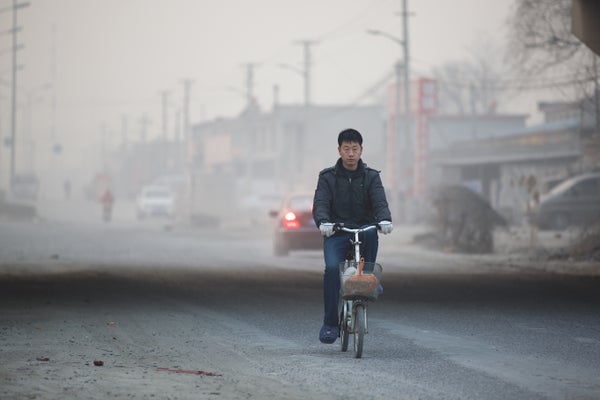Welcome to Scientific American’s Science Talk, posted on November 21st, 2019. I’m Steve Mirsky.
Here’s the beginning of a New York Times story from October 24th: “New data reveals that damaging air pollution has increased nationally since 2016, reversing a decades-long trend toward cleaner air.”
And here’s a line from a BBC story dated November 4th: “An Indian health ministry official said the city's pollution monitors did not have enough digits to accurately record pollution levels, which he called a ‘disaster.’”
On supporting science journalism
If you're enjoying this article, consider supporting our award-winning journalism by subscribing. By purchasing a subscription you are helping to ensure the future of impactful stories about the discoveries and ideas shaping our world today.
[GARDINER CLIP]
That’s journalist and author Beth Gardiner. And her new book is Choked: Life and Breath in the Age of Air Pollution. I recently called her at her home in London. After my 30-minute conversation with Gardiner, stay tuned for a five-minute segment, sponsored by the Kavli Prize, with CRISPR gene-editing pioneer Jennifer Doudna. And now Beth Gardiner.
[GARDINER SEGMENT]
[DOUDNA SEGMENT]
That’s it for this episode. Get your science news at our Web site: www.ScientificAmerican.com, where you can find at least 30 stories in our archives about CRISPR and gene editing.
And follow us on Twitter, where you’ll get a tweet whenever a new item hits the Web site. Our twitter name is @sciam. For Scientific American’s Science Talk, I’m Steve Mirsky. Thanks for clicking on us.

